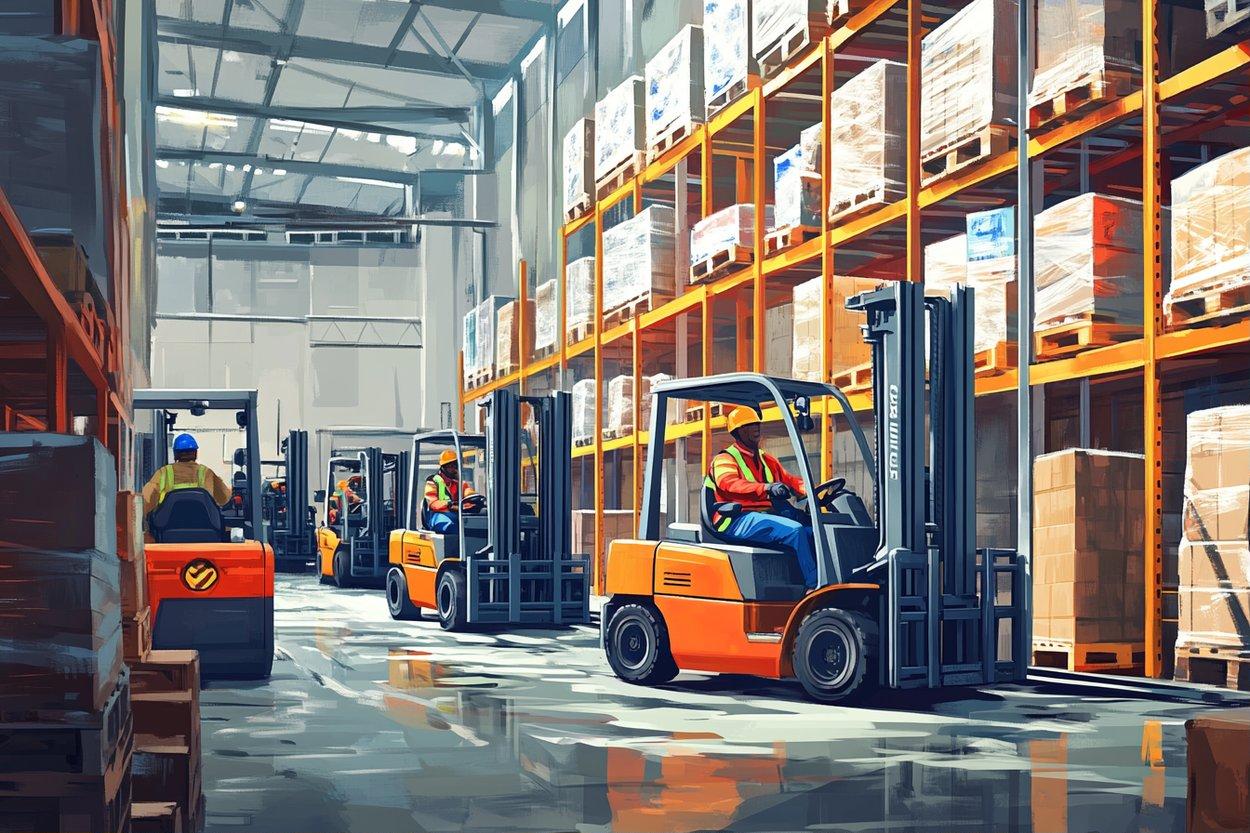Career Opportunities with Forklift Companies in the UK
The forklift industry plays a crucial role in the UK's logistics and warehousing sectors. This article provides an overview of the forklift operator profession, including typical responsibilities, industry trends, and qualifications sought by employers. While specific job openings are not listed here, this information aims to give readers a general understanding of the field.

What are the main responsibilities of forklift operators?
Forklift operators are essential personnel in warehouses, distribution centres, and manufacturing facilities. Their primary duties often include:
-
Safely operating forklifts to move, stack, and organize materials
-
Loading and unloading goods from trucks, containers, and storage areas
-
Performing daily equipment inspections and basic maintenance
-
Adhering to workplace safety protocols and regulations
-
Maintaining accurate inventory records and logs
-
Collaborating with team members to ensure efficient operations
The specific tasks may vary depending on the employer and industry sector. Forklift operators must prioritize safety and precision in their work to prevent accidents and damage to goods.
How is the UK forklift industry evolving?
The forklift industry in the UK is experiencing several changes that may impact career prospects:
-
Technological advancements: The integration of automation and electric forklifts is becoming more prevalent, potentially altering skill requirements for operators.
-
E-commerce growth: The rise of online shopping has increased demand for efficient warehouse operations, potentially creating more opportunities in the sector.
-
Sustainability focus: Many companies are adopting eco-friendly practices, which may lead to changes in equipment and operational procedures.
-
Brexit impact: Changes in trade regulations following Brexit may affect supply chain dynamics and warehouse operations.
These factors contribute to an evolving landscape in the forklift industry, potentially influencing job roles and skill requirements over time.
What skills and qualifications do employers typically seek?
Employers in the forklift industry generally look for a combination of technical skills, certifications, and personal attributes. Common requirements include:
-
Forklift operator certification: A valid certificate from an accredited training provider is typically mandatory.
-
Physical fitness: The ability to perform tasks that may involve lifting, bending, and long periods of standing or sitting.
-
Attention to detail: Precision is crucial for safe and efficient operations.
-
Good hand-eye coordination: Essential for operating machinery accurately.
-
Basic math skills: Useful for inventory management and load calculations.
-
Communication skills: Ability to work effectively in a team environment.
-
Health and safety awareness: Understanding of workplace safety regulations and best practices.
-
Adaptability: Willingness to learn new technologies and procedures as the industry evolves.
Some employers may also prefer candidates with additional qualifications such as a driver’s license, first aid certification, or experience with specific types of forklifts or warehouse management systems.
Are there opportunities for career advancement?
The forklift industry offers various paths for career progression, depending on individual goals and company structures. Potential advancement opportunities may include:
-
Senior operator roles with increased responsibilities
-
Shift supervisor or team leader positions
-
Warehouse management roles
-
Safety coordinator or trainer positions
-
Specialization in specific types of equipment or industries
Advancement often requires a combination of experience, additional training, and demonstrated leadership skills. Some professionals may also transition to related fields such as logistics management or supply chain operations.
What is the typical work environment for forklift operators?
Forklift operators typically work in warehouse or industrial settings, which can present unique challenges and considerations:
-
Physical demands: The job often involves long periods of sitting or standing, as well as some lifting and manual handling.
-
Shift work: Many operations run 24/7, potentially requiring night shifts or irregular hours.
-
Climate-controlled environments: While some warehouses are temperature-controlled, others may expose workers to varying weather conditions.
-
Safety focus: Strict adherence to safety protocols is essential due to the potential hazards of operating heavy machinery.
-
Team-oriented: Operators often work closely with colleagues in warehouse and logistics teams.
Understanding these aspects of the work environment can help individuals assess their suitability for a career in the forklift industry.
In conclusion, the forklift industry in the UK offers a range of career opportunities for those interested in logistics and material handling. While specific job openings are not provided here, this overview highlights key aspects of the profession, including responsibilities, industry trends, and typical employer requirements. Individuals considering a career in this field should research current job market conditions and seek appropriate training and certifications to enhance their prospects.




